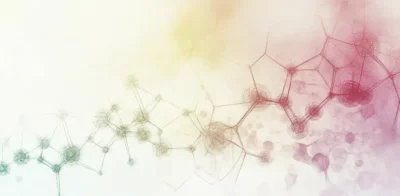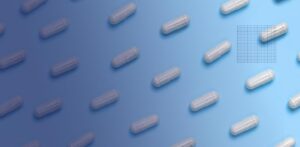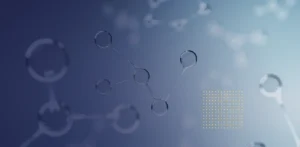
When cells lose NAD⁺: A new study shows a surprising virus-like response
A recent study published in Aging Cell in 2025 offers detailed insight into what happens when cells lose their supply of NAD⁺, one of the

A recent study published in Aging Cell in 2025 offers detailed insight into what happens when cells lose their supply of NAD⁺, one of the

When exploring vitamin B3 supplements or skincare products, you may encounter niacin, nicotinamide, and niacinamide. While they are related, their functions and uses differ. In

Nicotinamide may sound like something from a science book, but it’s actually one of the most common forms of niacin, or vitamin B3, that’s included in supplements. Like other vitamin B3 forms, your body transforms nicotinamide riboside into nicotinamide adenine dinucleotide (NAD+).

While it’s not possible to stop time, many factors can affect how people age. Diet, in particular, plays a huge role in promoting healthy aging.

table of contents If you care about energy, recovery, or healthy aging, you’ll meet NAD+ fast. Cells use it to turn food into ATP, repair

Our body needs different vitamins, enzymes, or fuels for additional requirements. Protein and other needs help build muscles. Carbohydrates give energy in a different way,

Most readers arrive here with a simple question: Which should I try—NMN vs NR? Both feed the same salvage pathway that keeps cellular NAD⁺ topped

The molecule your cells run on—and how to keep it steady as you age table of contents What is NAD+? It’s the coenzyme your cells
Take our quick quiz to discover the best product for your health goals.
We’re here to make healthy living effortless. Cookies help our website perform at its best and allow us to understand how we can improve your experience with Purovitalis. Privacy Policy • Imprint
These cookies keep the website running — things like your shopping cart, checkout, and security settings. Without them, the site wouldn’t work properly.
These help us remember your choices and improve your experience, like showing the right language or survey questions that fit your interests.
These cookies show us how visitors use our site so we can make it faster, clearer, and more useful. All data is collected anonymously.
These help us share relevant offers and information about Purovitalis across other websites and platforms — so you see content that matters to you.








Start Plans include 3 monthly deliveries and continue monthly after that unless canceled.
Before 3 deliveries
You can cancel at any time, but the plan will remain active until all 3 monthly deliveries are completed.
After 3 deliveries
You can cancel at any time before your next renewal. The plan does not end automatically and must be canceled manually.
Pausing or rescheduling
You can pause or change your delivery date at any time from your account.
Returns & refunds
Subscription orders are not eligible for refunds once shipped. Products already delivered as part of a Start Plan cannot be returned.
You can manage your plan anytime via My Account → Subscriptions, or contact us at [email protected].
Sign up for a 7-day free trial of our AI-powered app and take the first step towards a younger, healthier you.
or get full access with your product subscription!
Prof. Dr. Andrea Maier is an internist and professor of aging (“ longevity medicine ”) at the Vrije Universiteit in Amsterdam and the University of Melbourne, Australia. She studies the aging body and searches for anti-aging treatments. She heads the Center for Healthy Longevity in Singapore.
Why do we gradually decline during our average life of more than 80 years? Can we stop that process? Or maybe even turn around? And to what extent should we really want that? Maier gives practical tips on how we can extend our lifespan while also staying healthy.
Andrea Maier graduated in Medicine from the University of Lübeck in 2003. She specialized in internal medicine at the Leiden University Medical Center and subsequently chose the subspecialty of Geriatric Medicine. This is where she started her research into aging.
Exclusive Perks
Convenience
Consistency
Time-Saving